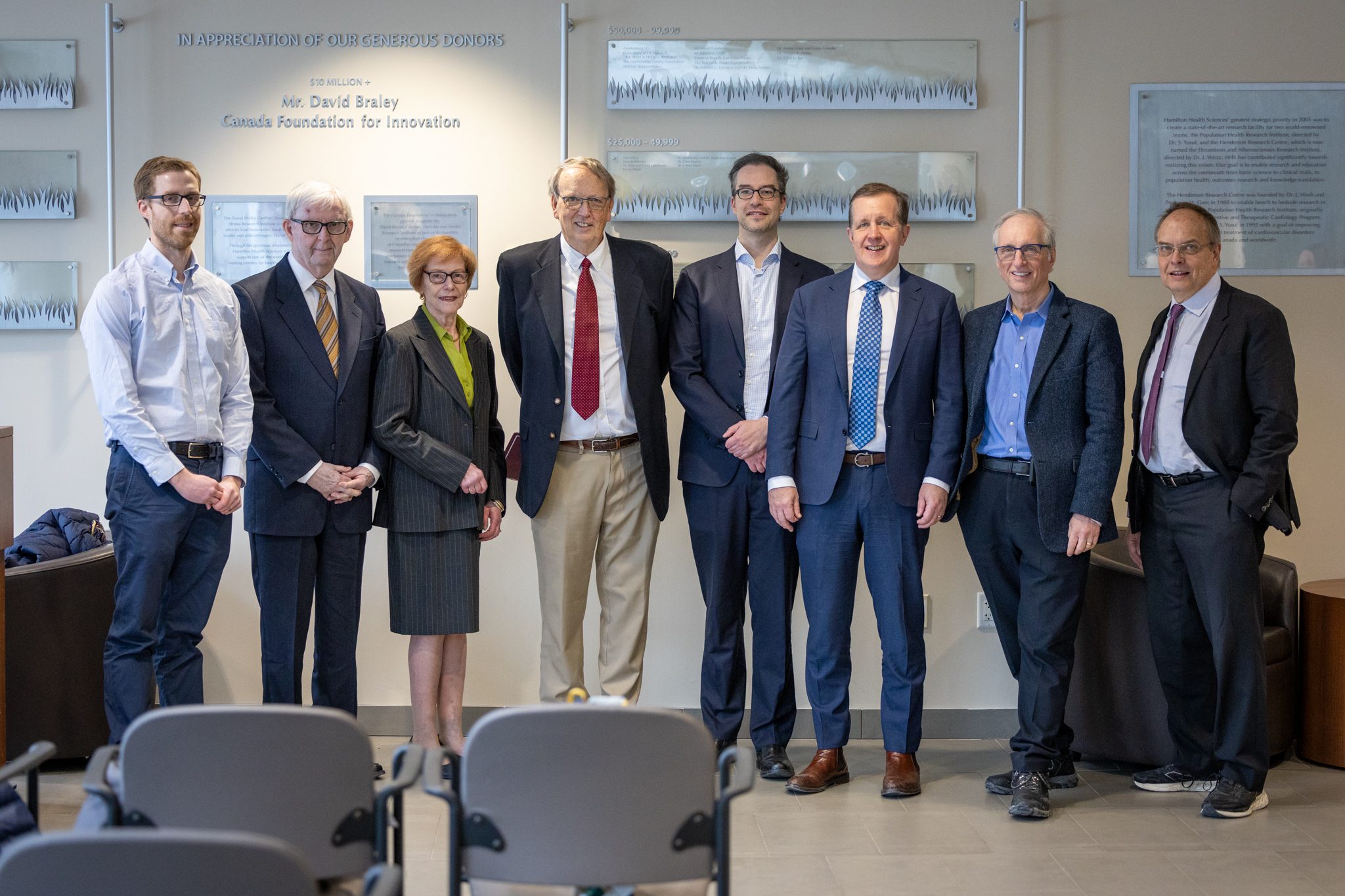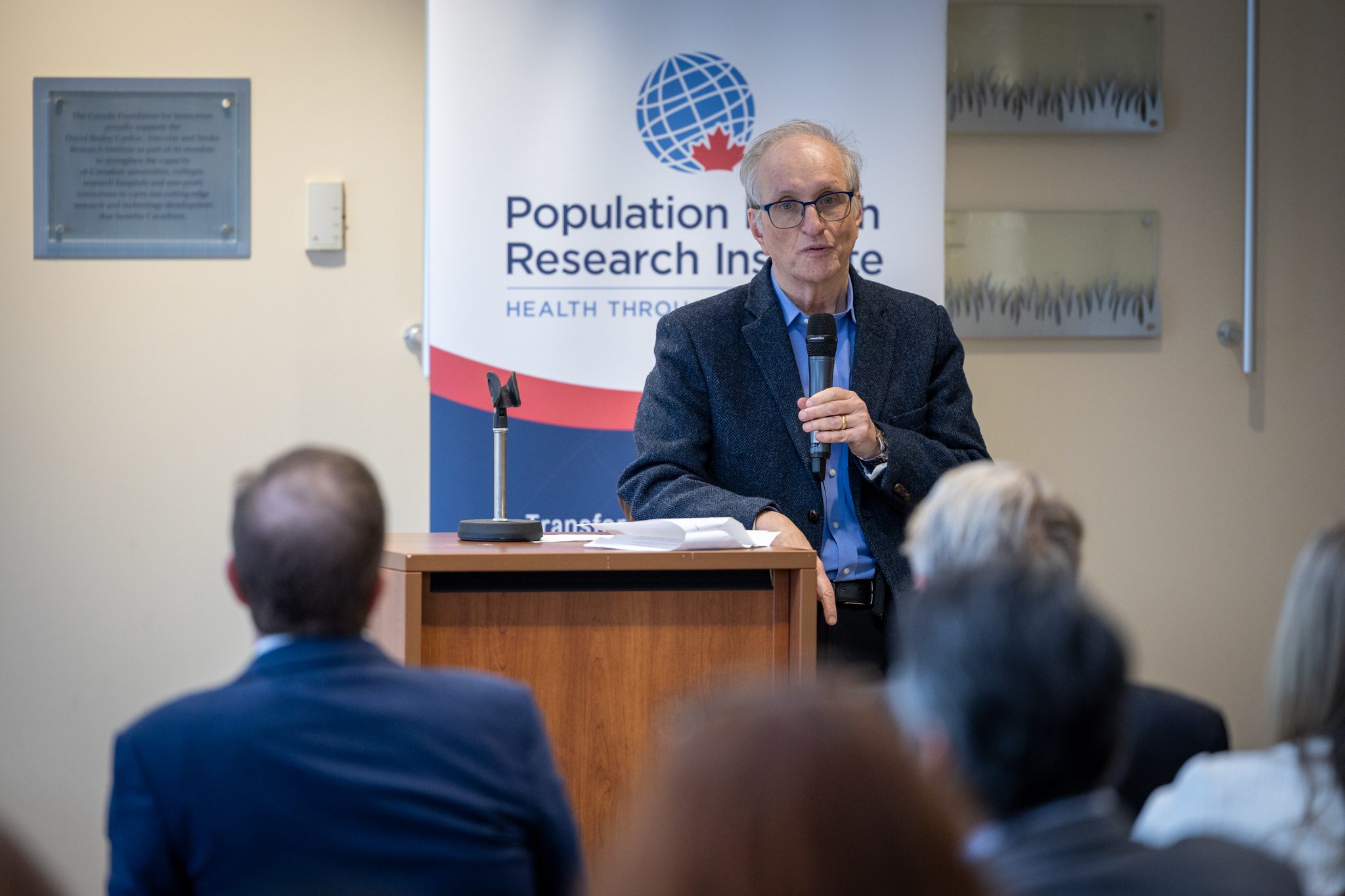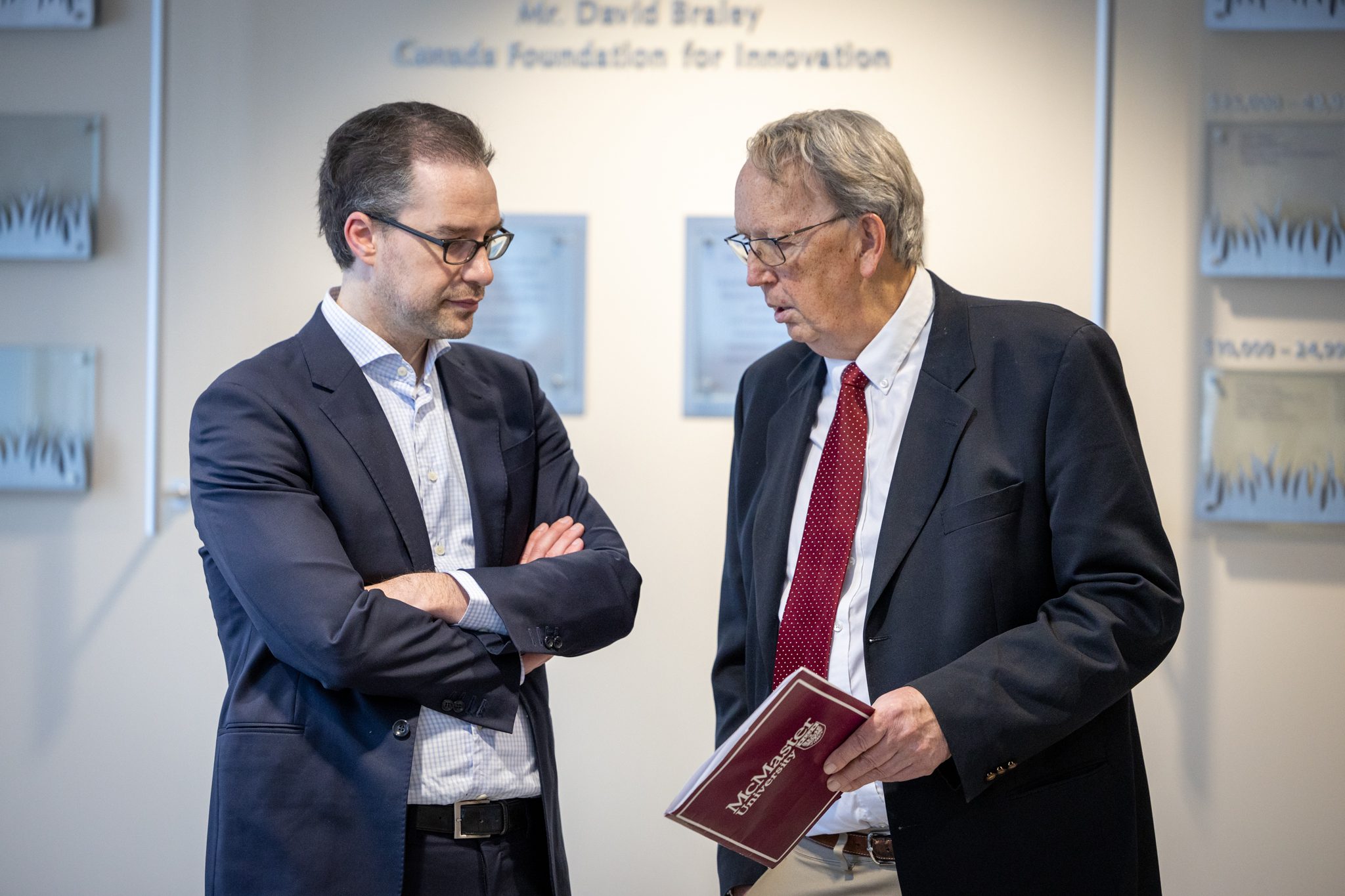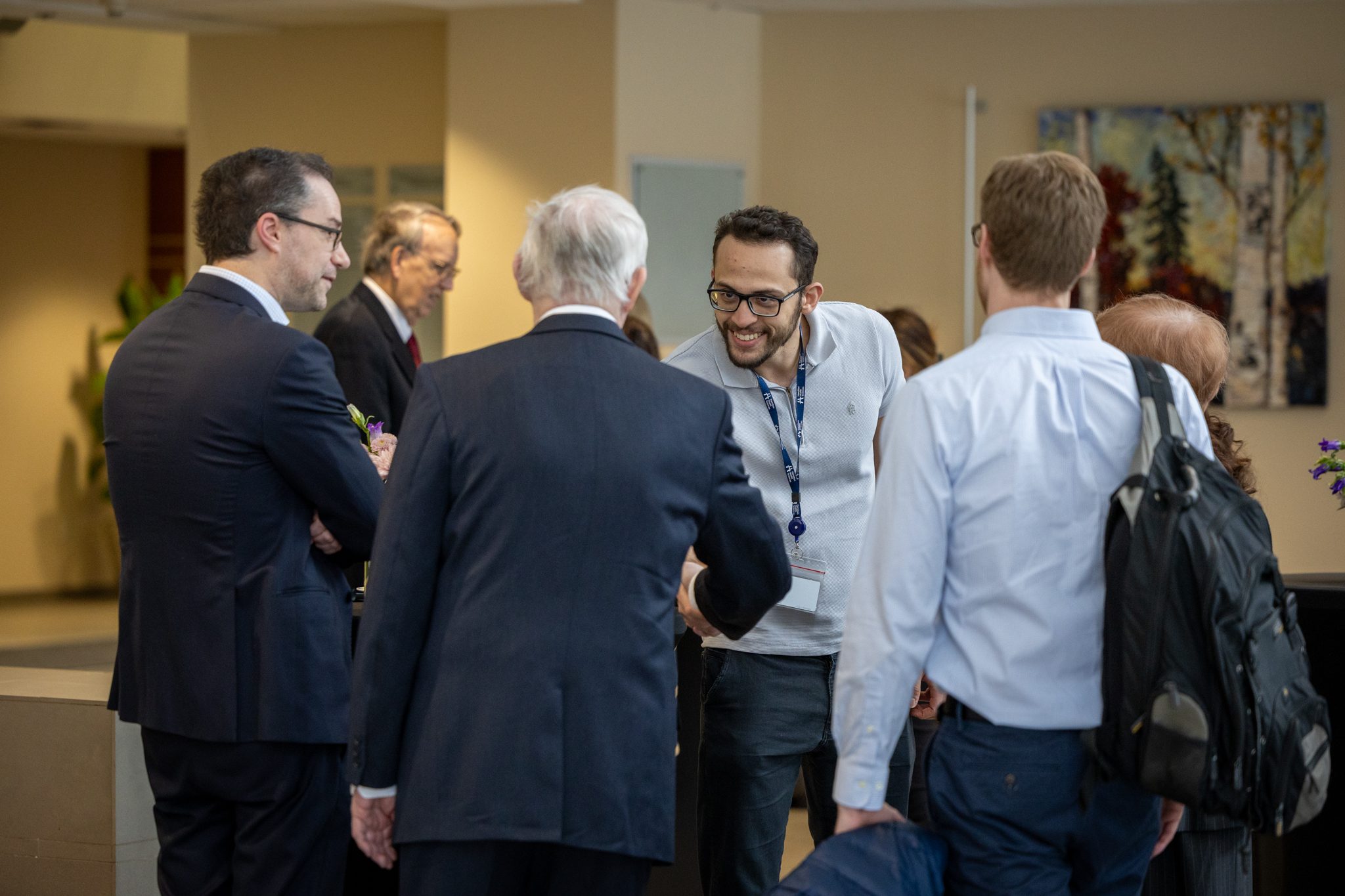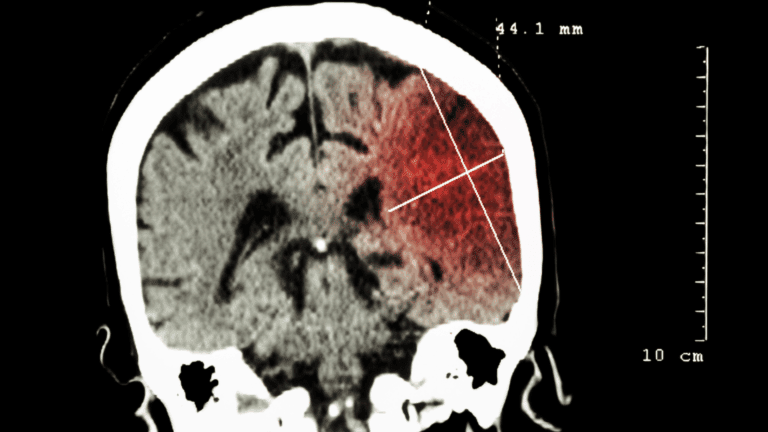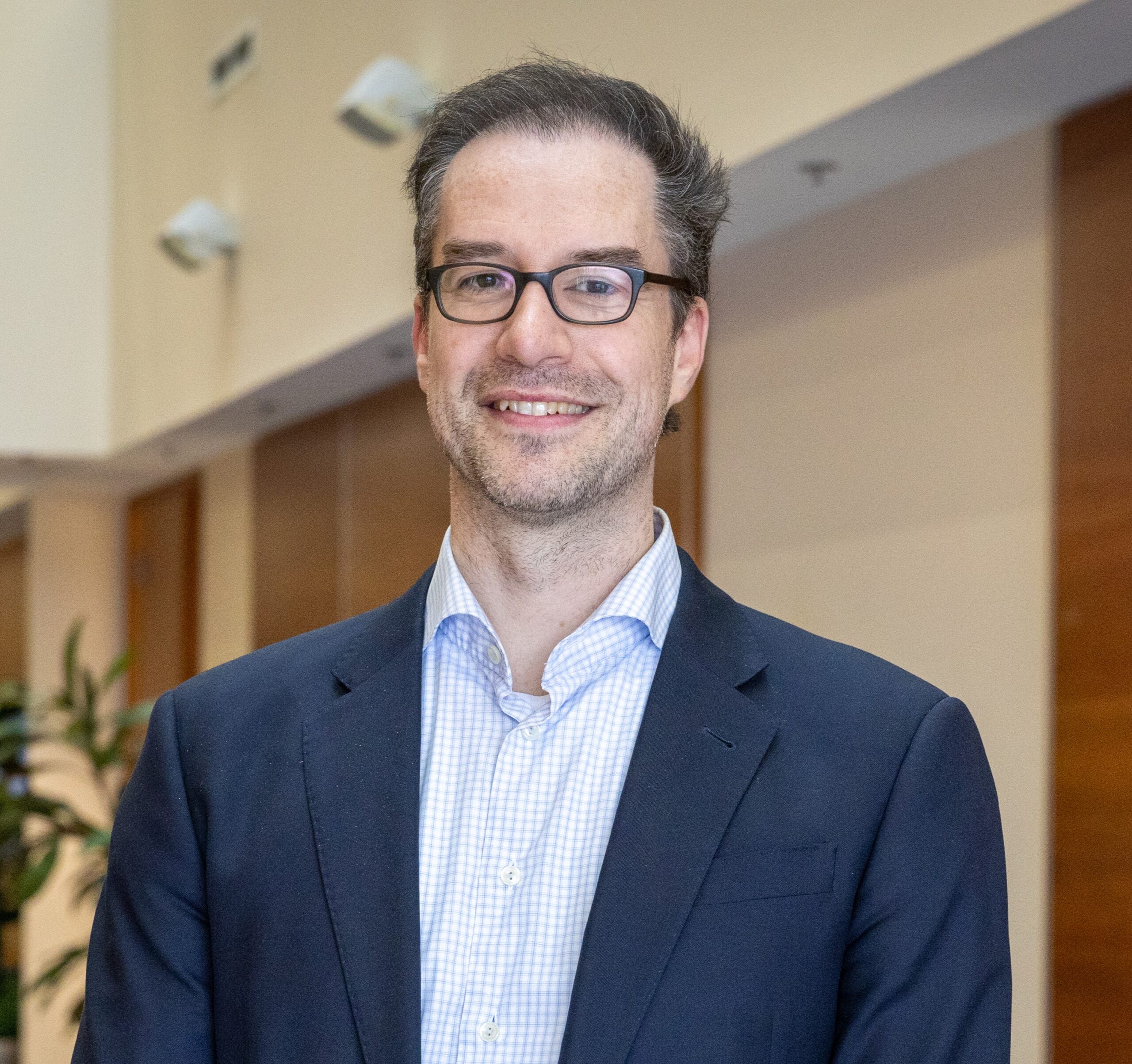
Jason Roberts
PHRI Scientist Jason Roberts has been named as the inaugural Marianne Barrie/PHRI Chair in Arrhythmogenic Right Ventricular Cardiomyopathy (ARVC) Research, recognizing his contributions to cardiac electrophysiology and research on gene-guided therapies.
Roberts leads research on the genetics of cardiac arrhythmias at PHRI, exploring new drugs and gene-based therapies for rare and common heart rhythm disorders. This appointment is supported with a $500K donation from the Estate of Marianne Barrie, matched by PHRI, and a $1M virtual match from McMaster University’s Department of Medicine.
At a special ceremony held at PHRI’s headquarters, colleagues and family gathered to celebrate Roberts. PHRI Senior Scientist Jeff Healey highlighted Roberts’ expertise, “There are not too many people like Jason with the unique skill set of heart rhythm disorders and genetics. He wanted to be somewhere he could move beyond gene discovery and risk assessment to focus on treatments that make a real difference for patients. He has a very innovative approach and leads a great trial that will enroll its first patient very soon.”
Hertzel Gerstein, PHRI’s Interim Executive Director, emphasized the significance of this appointment, “Medical approaches to ARVC are being pioneered and tested by Jason, our first chairholder, and they could very well be the next innovation. This investment in him has the potential to change the world for the better.”
Mark Crowther, Chair of the Department of Medicine at McMaster University, highlighted the importance of such endowments that “provide inestimable benefit to our researchers, providing them with funding that can be used to initiate and drive their research programs and provide the data required to support large peer-reviewed grants.”
Genetics Cardiac Arrhythmia Research at PHRI
Roberts is the principal investigator of TaRGET, a nationwide randomized placebo-controlled trial to test a new treatment for ARVC, a genetic heart disorder, characterized by episodes of fainting and, in some cases, cardiac arrest and sudden death in previously perceived healthy individuals.
“TaRGET is one of the first studies where we’re evaluating a drug to change the natural progression of the disease, altering how these individuals’ hearts evolve” stated Healey.
TaRGET received Health Canada approval in early 2024 and will begin enrollment across 20 Canadian sites in a few weeks. Roberts joined PHRI in 2020 as part of the arrhythmia team and has been working closely with Healey, the late Senior Scientist Stuart Connolly, and Senior Scientist Guillaume Paré to bring the trial to launch. “Being part of the team here has been crucial in bringing the trial to the point where we’re about to launch in the next month or two,” added Roberts.
PHRI’s interdisciplinary collaboration has been key for discoveries that have shaped the healthcare guidelines over the past 25 years. Gerstein emphasized, “As a research institute focusing on reducing, treating, and preventing serious health outcomes such as death, heart attacks, strokes, and hospitalizations, we have the infrastructure and the expertise to properly study ARVC. Our ability to conduct well-designed randomized controlled trials ensures that we can accurately assess whether promising therapies work in affected individuals”
“I felt there were only a few places in the world where I could do this type of multi-center clinical trial for a new therapy, and PHRI felt like the perfect fit. It feels great to be in the right place, surrounded by supportive colleagues and incredible resources, with the potential to make a real impact on patients’ lives,” said Roberts.
Roberts is a clinical cardiac electrophysiologist at Hamilton Health Sciences and an Associate Professor of Medicine at McMaster University. He previously worked at the University of Western Ontario as part of the London Heart Rhythm Program, where his research focused on refining insights into the clinical and genetic features of inherited arrhythmia syndromes. Roberts completed his training in cardiac electrophysiology at the University of California, San Francisco (UCSF) and his cardiology fellowship at the University of Ottawa Heart Institute. He holds a master’s degree in clinical epidemiology and biostatistics from UCSF.
